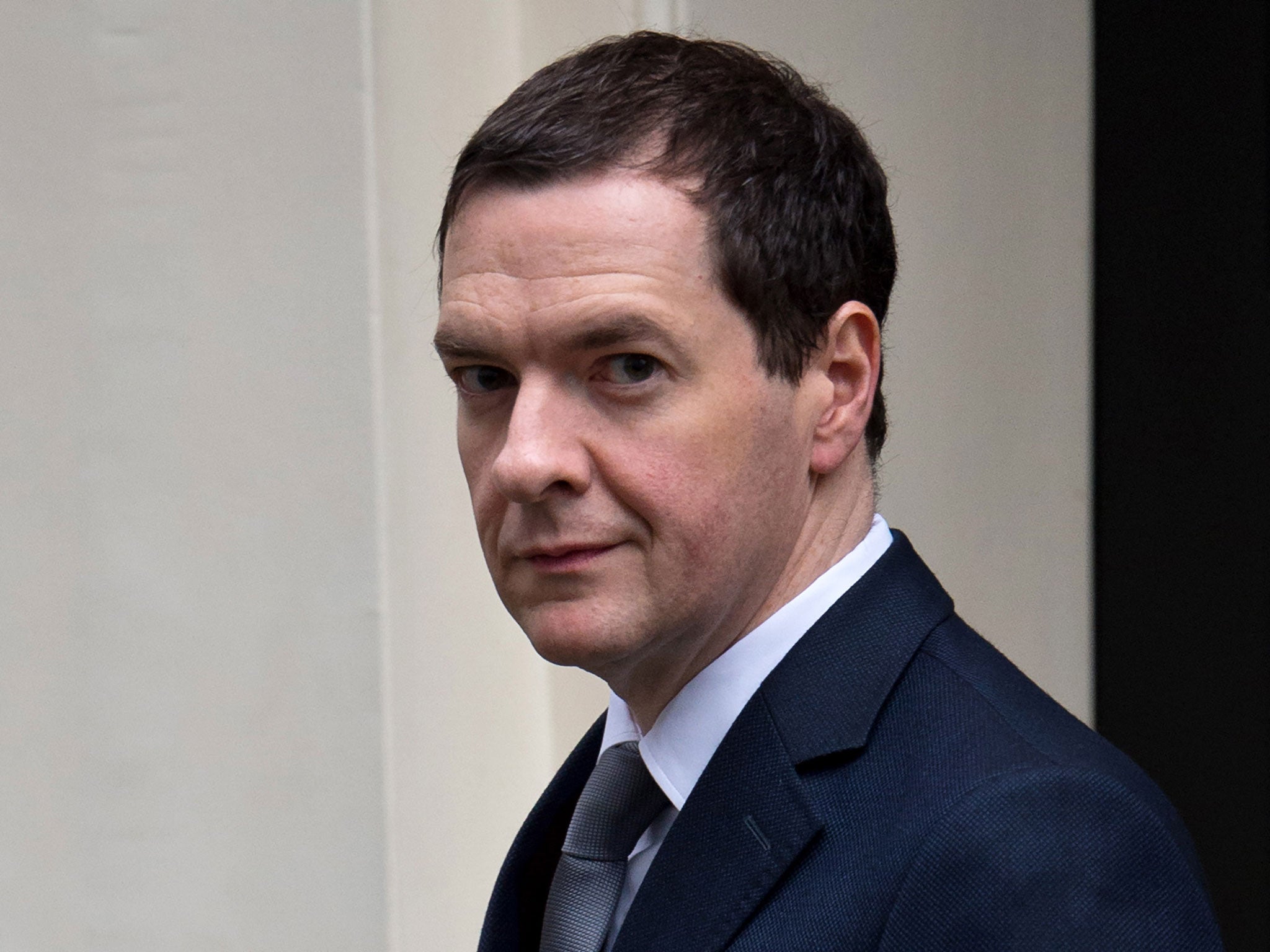Benefit cuts: George Osborne urged to make U-turn on universal credit
Exclusive: Advisers warn merging of in-work benefits threatens to undo 'welcome decision to reverse tax credit changes'

Your support helps us to tell the story
From reproductive rights to climate change to Big Tech, The Independent is on the ground when the story is developing. Whether it's investigating the financials of Elon Musk's pro-Trump PAC or producing our latest documentary, 'The A Word', which shines a light on the American women fighting for reproductive rights, we know how important it is to parse out the facts from the messaging.
At such a critical moment in US history, we need reporters on the ground. Your donation allows us to keep sending journalists to speak to both sides of the story.
The Independent is trusted by Americans across the entire political spectrum. And unlike many other quality news outlets, we choose not to lock Americans out of our reporting and analysis with paywalls. We believe quality journalism should be available to everyone, paid for by those who can afford it.
Your support makes all the difference.The Government’s advisers on child poverty have urged George Osborne to make a second welfare U-turn, to prevent his proposed cuts to in-work benefits destroying the incentive to work for millions of low-paid people.
Alan Milburn, who chairs the Social Mobility and Child Poverty Commission, has joined those warning the Chancellor that his decision last month to scrap his £4.4bn of cuts in tax credits will merely postpone the impact on those who rely on state-funded wage top-ups. Mr Osborne is accused of implementing virtually identical cuts through the back door – via the phasing in of universal credit, which will merge six benefits including tax credits over the next few years. He has been warned he will be hurting people from low-income families who “do the right thing” by working hard.
Mr Milburn, a Labour former cabinet minister, told The Independent: “Without changes to universal credit, George Osborne’s welcome decision to reverse planned tax credit changes will merely defer the pain for many low-paid working families.
“As the economy strengthens, the Government should look to reverse cuts to universal credit so that this key welfare reform can improve work incentives. It should take the opportunity in 2016 to set out a timetable for doing so.”
The commission has warned Iain Duncan Smith, the Work and Pensions Secretary, that his goal of “making work pay” may not now be delivered. In a report to ministers, the commission says: “Worse still, there is a risk that incentives to progress in work for many families could end up being worse than they were in the pre-2010 system.” It is worried that people will be deterred from working longer hours or moving to better-paid jobs.
The watchdog says ministers should implement Mr Duncan Smith’s original 2009 plan, which would allow people on universal credit to keep 45p of every extra £1 they earn, instead of 35p under the Government’s plans.
This would “provide better incentives for low-paid workers to progress”. The current proposals could even give people a financial incentive to work fewer hours, it claims.
The commission warns that the looming squeeze could “undermine the beneficial impact” of Mr Osborne’s decision to bring in a £7.20-an-hour national living wage next April.
It expresses “grave concern” that the cuts will still go ahead by 2020 “because they will cause real hardship to many working families”. Lone parents, single-earner couples and large families will be hit hardest, it predicts. It says: “The net impact of changes to universal credit announced in the 2015 summer Budget on work incentives is largely negative, due to significant reductions in the generosity of work allowances [the amount people can earn before their state payments are reduced]”.
Despite last month’s U-turn, some cuts to universal credit will quietly go ahead next April. The commission says claimants who pay income tax would keep only 24p of every extra £1 they earn, and would need to earn an extra £210 a week to make up the losses from a reduced work allowance. The living wage would help, but would provide only an extra £39 a week. A single parent working full-time on the minimum wage and receiving no help with housing costs would lose £50 a week, it calculates.
Although transitional relief will protect the incomes of people already getting tax credits, the commission says this applies only if their circumstances do not change.
Mr Osborne insists that delaying the changes will give people time to prepare for them, and that the blow will be softened by the living wage, a £12,500 personal tax allowance by 2020 and more state-funded childcare.
A government spokesman said it was “committed to an all-out assault on poverty”. Universal credit “ensures work always pays, and supports people to progress”, he said. “And it is working – under the new system people are significantly more likely to be in work, and earn more than under the old system. Universal credit takes in six different tax credits and benefits so is an entirely different system to the current one, and comparing what someone making a new claim would receive under the new system in 2020 to what they would be eligible for now is not legitimate.”
Join our commenting forum
Join thought-provoking conversations, follow other Independent readers and see their replies
Comments